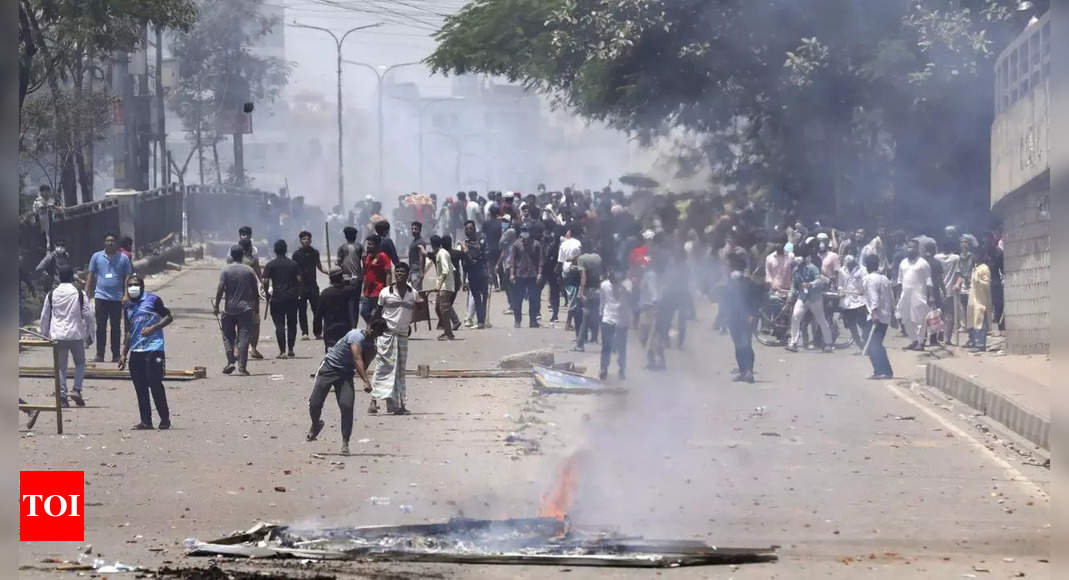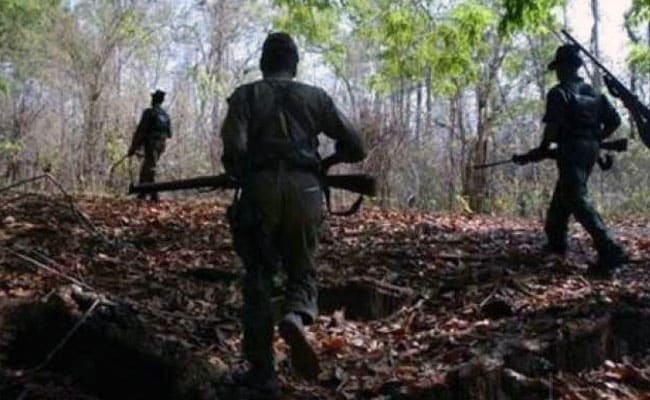
The United States on Saturday released an updated travel advisory for Bangladesh, cautioning American citizens to reconsider their plans to visit the nation due to the current state of “civil unrest”, criminal activity, and the threat of terrorism.
In an effort to suppress further violence following days of confrontations over the distribution of government employment opportunities, which resulted in the deaths of over 40 individuals and left hundreds wounded, officials enforced a stringent curfew throughout Bangladesh, and army troops were deployed to patrol certain areas of the capital city.
The US State Department said in a statement on Saturday,” Travelers should reconsider travel due to civil unrest in Dhaka. Ongoing demonstrations and violent clashes have been reported throughout the city of Dhaka, its neighboring areas, and throughout Bangladesh.”
“Due to the security situation, there may be a delay in provision of routine consular services,” it added.
The US State Department has announced that due to security concerns, personnel at the US Embassy in Bangladesh are subject to certain restrictions on movement and travel, which may limit their ability to provide emergency services to US citizens in the country.
Both the United States and Canada have urged Bangladesh to respect the right to peaceful protest and have expressed their concern over the recent violence that has taken place in the country.
The students have been protesting against public sector job quotas, which include a 30% reservation for family members of fighters from the 1971 War of Independence from Pakistan. Prime Minister Sheikh Hasina has said that the government will establish a judicial committee to investigate the killings.
In response to the protests, the police have used tear gas to disperse protesters in some areas, while the government has prohibited public gatherings, imposed restrictions on communications, deployed the army in certain parts of the country, and enforced a curfew.
Over the past week, dozens of people have been killed.
The quotas have sparked anger among students who are facing high rates of youth unemployment, with nearly 32 million young Bangladeshis out of a total population of 170 million people not currently engaged in work or education.
(With inputs from agencies)
In an effort to suppress further violence following days of confrontations over the distribution of government employment opportunities, which resulted in the deaths of over 40 individuals and left hundreds wounded, officials enforced a stringent curfew throughout Bangladesh, and army troops were deployed to patrol certain areas of the capital city.
The US State Department said in a statement on Saturday,” Travelers should reconsider travel due to civil unrest in Dhaka. Ongoing demonstrations and violent clashes have been reported throughout the city of Dhaka, its neighboring areas, and throughout Bangladesh.”
“Due to the security situation, there may be a delay in provision of routine consular services,” it added.
The US State Department has announced that due to security concerns, personnel at the US Embassy in Bangladesh are subject to certain restrictions on movement and travel, which may limit their ability to provide emergency services to US citizens in the country.
Both the United States and Canada have urged Bangladesh to respect the right to peaceful protest and have expressed their concern over the recent violence that has taken place in the country.
The students have been protesting against public sector job quotas, which include a 30% reservation for family members of fighters from the 1971 War of Independence from Pakistan. Prime Minister Sheikh Hasina has said that the government will establish a judicial committee to investigate the killings.
In response to the protests, the police have used tear gas to disperse protesters in some areas, while the government has prohibited public gatherings, imposed restrictions on communications, deployed the army in certain parts of the country, and enforced a curfew.
Over the past week, dozens of people have been killed.
The quotas have sparked anger among students who are facing high rates of youth unemployment, with nearly 32 million young Bangladeshis out of a total population of 170 million people not currently engaged in work or education.
(With inputs from agencies)









